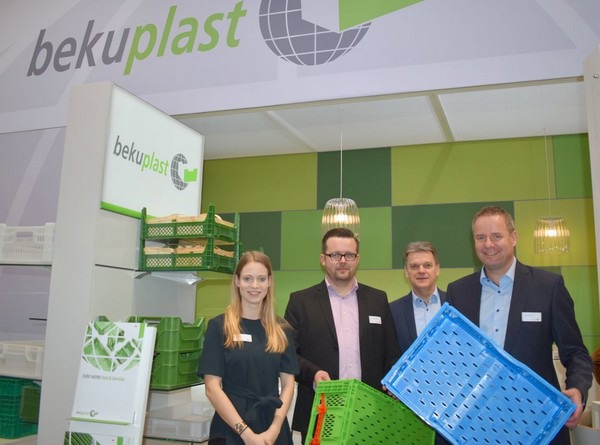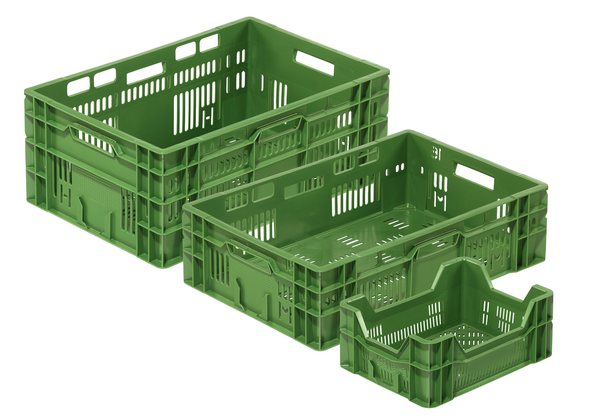When it comes to secondary packaging and transport packaging, people nowadays often think of hinged crates as used in the common pool systems. Nevertheless even rigid fruit and vegetable crates still have a right to exist, says Gerold Wilms from bekuplast.
"This type of crate has been around for 25 years. Back then they were also used by pool system suppliers such as Euro Pool System. But even today, countless truckloads of rigid crates are ordered from us every year," says Wilms.

The company bekuplast at Fruit Logistica 2020, represented by Jana Musam, Lars Lübbermann, Jürgen Schulz and Gerold Wilms.
The continuing popularity of the crates comes as no surprise to Wilms and his colleagues at the crate manufacturer from Ringe: "Thanks to their stability and robustness, the crates can also be used as harvest crates in the field and are extremely dimensionally stable. They are almost indestructible - there are even models from the first years of production on the market."
The crates are particularly suitable for short distribution channels: "This type of transport is ideal for growers with their own goods distribution or delivery directly to wholesale markets. Handling could not be easier and the crate can also be used directly for the presentation of goods." Thanks to short distances between the producer and the wholesale market or cooperative, the volume reduction in return freight is less significant and the rigid crate is therefore a cost-effective alternative.

"Of course, the rigid crates are also made of food-safe polyethylene (HDPE) and are therefore suitable for contact with food without restrictions," Wilms confirms.
So the rigid crate will not disappear from the market too soon: "At wholesale and weekly markets, at the grower and in many other areas of the fruit and vegetable supply chain, our rigid crates are still indispensable."
For more information:
Gerold Wilms
bekuplast GmbH
Industriestraße 1
49824 Ringe
Deutschland
Tel: +49 5944 9333-43
Mobile: +49 1739223533
E-Mail: g.wilms@bekuplast.com
Web: www.bekuplast.com
